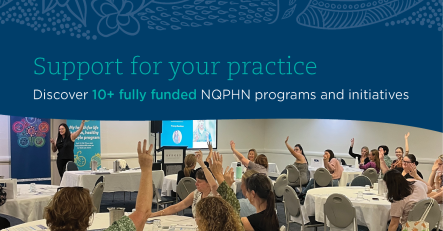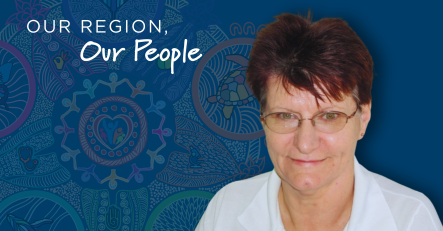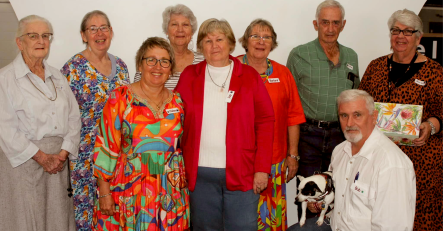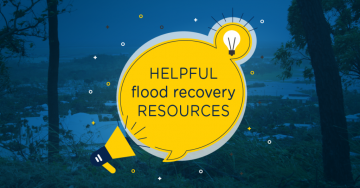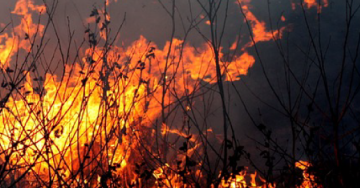How can we help you today?
Practices and pharmacies may have experienced a cold chain breach due to loss of power from a cyclone and/or floods.
Each vaccine requires a different process for action and reporting. See below for further information:
- COVID 19 Vaccines: Cold chain breaches of COVID-19 vaccines should be reported immediately to the Vaccination Operations Centre (VOC) on 1800 318 208. Vaccine providers must refer to the National Vaccine Storage Guidelines (Strive for 5) for cold-chain management of COVID-19 vaccines.
- Queensland Health-provided vaccines: QH do not dispose of vaccines. These must be keep for Public Health Unit collection – follow these instructions and fill out the cold chain breach reporting form.
- Other vaccines and medicines: National vaccine storage guidelines and information can be found here: National vaccine storage guidelines - Strive for 5, 3rd edition (health.gov.au) (Appendix 3: Cold chain breach protocol)
- Find out more, including how to report a breach. You can also visit your local HealthPathway for advice about vaccine storage and cold chain breaches.
The Queensland Government provides Queensland natural disaster assistance for small business and primary producers. They are also providing personal hardship financial assistance with more information on eligibility available here.
Further information on disaster assistance can be found at www.disasterassist.gov.au, www.qld.gov.au/disasterhelp or www.qra.qld.gov.au
If you’re experiencing emotional stress or personal financial hardship from a disaster event, contact your local emergency relief provider or counselling service or call the Community Recovery Hotline on 1800 173 349 for help.
General practitioners (GPs) are essential in supporting individuals and communities before, during and in the aftermath of natural disasters and emergencies.
If your business has been affected by cyclones and/or floods, there's information and support services available to help you get your business back on track.
The Queensland Government, through the Department of Employment, Small Business and Training, provides support to small businesses impacted by cyclones and floods.
Additionally, there are a range of services already available to assist you to recover from natural disasters and get your business back on track.
Find out more using the following links:
Free wellbeing support for general practice and pharmacy staff
NQPHN is offering free EAP support for all general practice and pharmacy staff affected by the impact of cyclones and/or floods.
An Employee Assistance Program (EAP) is a work-based intervention program designed to enhance the emotional, mental, and general psychological wellbeing of all employees and includes services for immediate family members.
To access this confidential service, please contact AccessEAP on 1800 818 728 and identify as one of these groups when calling into our service, starting with Northern Queensland Primary Health Network, then either Chemist Staff or GP staff.
For more information on AccessEAP, visit their website.
NQPHN has also created an EAP support poster to advise staff of the service availability:
- Download poster (General Practices)
- Download poster (Pharmacies)
Wellbeing support for Practice Managers and their teams
AAPM has set-up a dedicated opportunity for Practice Managers and their team members to access the AAPM Member Assistance Program. AAPM will fully fund the first few engagements to ensure healthcare professionals can remain supported.
AAPM Non-Member Support can be accessed here using code NMS024 to successfully identify and validate your eligibly.
Head to Health
Prioritising your mental health is important. If you or someone you know needs mental health support, it’s available 24/7. Find resources and helplines at Head to Health.
A list of mental health and suicide prevention support services are listed in the drop down table below. Please note, NQPHN are not crisis or emergency services. For urgent support, call any of the numbers listed in the table below. If you need immediate help or are at risk of harm to yourself or others, call 000.
Support services
| Service | Description | Contact details |
|---|---|---|
| 13 YARN | Aboriginal and Torres Strait Islander crisis support line. Available 24/7. No shame, no judgement, safe place to yarn. | 13 92 76 / 13yarn.org.au |
| 1800 RESPECT | Free, 24/7 support for people impacted by domestic, family, or sexual violence. | 1800 732 732 / 1800respect.org.au |
| Beyond Blue | 24/7 support programs to address issues related to depression, suicide, anxiety disorders, and other related mental illnesses. | 1300 224 636 / beyondblue.org.au |
| Head to Health Phone Service | Local general mental health advice and support. You can make a free call to Head to Health between 8.30am-5pm weekdays (except public holidays). | 1800 595 212 / headtohealth.gov.au |
| headspace Cairns | Free mental health service available for 12-25 year olds. Headspace Cairns is closed during the cyclone event, but will post updates when reopened on their social media pages. E-headspace services are available, including phone and online support via the headspace web page. | Online and phone and support - headspace |
| Kids Helpline | Resilient Kids resource 'The Hub' is available for practical and mental health strategies to cope before, during and after a disaster. |
1800 55 1800 / kidshelpline.com.au/disaster-response |
| Lifeline Australia | Lifeline is a national charity providing all Australians experiencing a personal crisis with access to 24 hour crisis support and suicide prevention. | 13 11 14 / lifeline.org.au |
| StandBy Support After Suicide Service | 24-hour community-based, suicide postvention program for people bereaved by suicide. | 1300 727 247 / standbysupport.com.au |
| Suicide Call Back Service | Free counselling for suicide prevention & mental health via telephone, online & video for anyone affected by suicidal thoughts, 24/7. | 1300 659 467 / suicidecallbackservice.org.au |
| QLife | LGBTI peer support and referral for people wanting to talk about a range of issues including sexuality, identity, gender, bodies, feelings, or relationships. | 1800 184 527 / qlife.org.au |
Environmental conditions after floods and cyclones increase the risk for infectious diseases.
Please be particularly alert to wounds exposed to muddy water and cases of invasive environmental bacteria such as leptospirosis and melioidosis:
- The incubation period is 5-14 days. Patients present with abrupt fever, headaches and myalgia.
- People displaced, re-entering inundated homes or after power-interruption face a variety of risks related to food spoilage, contamination and general hygiene. Most will be ordinary infections including viral gastroenteritis but food poisoning is possible too.
- Read more.
Remember that 'Food or water-borne illness in 2 or more cases' is one of the clinical Notifiable Diseases that you must inform the Public Health Unit of before lab confirmation. Visit the Public Health Unit website here to get in touch.
Queensland Health factsheets
- Caring for children in heat
- Ensuring safe drinking water
- Food safety in an emergency
- Health advice for emergency response workers
- Heat-related illness
- Mosquito – controlling breeding after floods, storms and cyclones
- Mosquito-borne diseases after a storm, flood or cyclone
- Mould - Dealing with mould after a storm, flood or cyclone
- Playgrounds and sporting fields - use during flood recovery
- Rainwater tanks affected by natural disasters
- Restoring flood-affected domestic swimming and spa pools
- Returning to a disaster-affected house or building
- Stay safe and healthy after storms, cyclones and floods
- Staying healthy in the heat
- Use and disposal of medicines after a disaster
Worksafe
If you’re experiencing emotional stress or personal financial hardship from a cyclone and/or a flooding event, contact your local Qld Health emergency relief provider or counselling service or call the Qld Health Community Recovery Hotline on 1800 173 349 for help.
Recovery centres have and will continue to be opened across flood affected areas. Information is available here:
During and after a disaster you may need practical assistance or community support to assist you and your family.
The Queensland Government's regional community support services brochures provide information and contact details for key community services available in your area, listed by region.
Also, after a disaster financial assistance may be available if you have been impacted and are unable to meet your own recovery.
A large number of those affected by disasters are children. They may have suffered major disruption, losses, or lived through frightening experiences. Many other children are affected indirectly, through hearing about a disaster or knowing someone who has been affected by a disaster.
The Australian Psychological Society has a useful fact sheet for parents and carers on helping children who have been affected by floods.
Federal Government’s information for school aged kids:
The Queensland Government has made available translated resources about financial assistance grants to distribute to your communities.
For specific information (including available financial support) on Tropical Cyclone Jasper, which occurred in December 2023, please follow the below tab.
Financial assistance
Tropical Cyclone Jasper and subsequent flooding affected communities in Far North Queensland.
Personal hardship financial assistance is available for affected residents in the Local Government Areas of:
- Cairns Regional
- Cassowary Coast
- Cook Shire (defined localities)
- Douglas Shire
- Mareeba Shire
- Tablelands Regional
- Wujal Wujal Aboriginal Shire
- Yarrabah Aboriginal Shire.
Housing assistance is available for residents affected by this event.
Services Australia is providing support for people affected by Tropical Cyclone Jasper in Queensland, including the Australian Disaster Recovery Payment.
If you’re experiencing emotional stress or personal financial hardship from this event, contact your local emergency relief provider or counselling service or call the Community Recovery Hotline on 1800 173 349 for help.
The Essential services safety and reconnection grant is available to eligible homeowners needing to reconnect electricity, gas, water or sewerage.
The Queensland Government is providing Queensland natural disaster assistance for small business and primary producers. They are also providing personal hardship financial assistance with more information on eligibility available here.
Further information on disaster assistance can be found at www.disasterassist.gov.au, www.qld.gov.au/disasterhelp or www.qra.qld.gov.au
Support for small business
If your business has been affected by ex-tropical cyclone Jasper, there's information and support services available to help you get your business back on track.
The Queensland Government, through the Department of Employment, Small Business and Training, provides support to small businesses impacted by ex-tropical cyclone Jasper.
If you have been impacted, please share how you've been affected by recent severe weather and what assistance you need by completing the natural disaster business impact survey here.
Additionally, there are a range of services already available to assist you to recover from natural disasters and get your business back on track.
Find out more using the following links:
- Business Queensland - Natural disaster resilience and recover
- Disaster assistance loans and grants
- Free mentoring for recovery and business support
- Small business wellness coaches
- Small business financial counselling
- Queensland Small Business Commissioner
Cairns and Hinterland HHS ex-TC Jasper resources
- Keep your family safe
- Keep your family safe - food safety
- Keep your family safe - mosquitoes
- Public health advice - melioidosis
- Public health risks after a flood
- The facts about melioidosis
- The facts about mould
Community Recovery Hotline and recovery centre hubs
If you’re experiencing emotional stress or personal financial hardship from ex-TC Jasper and the flooding event, contact your local Qld Health emergency relief provider or counselling service or call the Qld Health Community Recovery Hotline on 1800 173 349 for help.
Recovery centres have and will continue to be opened across flood affected areas. Information is available here:



